In early 2022, when the world was still immersed in the COVID-19 pandemic, when borders were still closed and insecurity was widespread, Vietnam opened another door: the door of faith and hope. The first VinFuture Awards ceremony took place in that context, not only as an event to honor science , but also as a symbol of Vietnam's aspiration to rise up.
Special Flight to Hanoi : Beginning of a Magical Journey
In January 2022, in the cold of late winter in Hanoi, Noi Bai Airport welcomed rare international visitors after a long period of closure. On that special flight were Dr. Katalin Karikó, Prof. Drew Weissman and Prof. Pieter Cullis - three pioneering scientists in mRNA technology, co-winners of the first VinFuture Grand Prize.
“ The airport was deserted. We were probably the first foreign guests to be welcomed after a long period of closure ,” Professor Weissman recalled.
The group of scientists were welcomed with special procedures: traveling on a private flight, staying in a quarantine area, being tested multiple times a day, and maintaining social distancing throughout the trip to ensure absolute safety. However, in the tense atmosphere of the pandemic, the thoughtfulness, warmth, and respect for knowledge of the host country made everyone feel warm.
“When I learned that I was awarded the VinFuture Main Prize, I was extremely grateful. This is a completely new prize, and we are the first to be honored,” Dr. Karikó emotionally shared.

Arriving in Vietnam in early 2022, Dr. Katalin Karikó reunited with his Vietnamese university friend in Hungary at the Exchange event with the VinFuture Prize Winner. Photo: VFP.
The trip to Vietnam was not only a scientific event for her, but also a journey with a strong personal imprint: “My daughter insisted on coming along, and we had a wonderful time. I had Vietnamese friends from my time studying in Hungary. Meeting them again after 40 years in Vietnam was an extremely emotional experience.”
For Professor Weissman, what moved him most was VinFuture's unique vision, because two years later, their research on the mRNA vaccine to prevent COVID-19 brought him and Dr. Katalin Karikó the prestigious Nobel Prize in Medicine.
“VinFuture saw the huge potential of mRNA technology early on. That appreciation has always been very special to us ,” Professor Weissman emphasized.
Awards Ceremony at the Opera House: A Symbol of Hope and Unity
On the evening of January 20, 2022, the Hanoi Opera House lit up in a solemn and warm atmosphere. While the world is still divided by the pandemic, VinFuture wrote a historic moment - where cutting-edge science and humanity intersect.
Professor Quarraisha Abdool Karim, co-winner of the Special Prize for Scientists from Developing Countries, and her husband, Professor Salim Abdool Karim, still remember that moment clearly.

Professor Salim Abdool Karim and Professor Quarraisha Abdool Karim shared about their research to help prevent the risk of HIV infection and reduce the burden of AIDS, at an event at VinUni University in early 2022. Photo: VFP.
“We were overwhelmed with joy when we stood on the VinFuture stage. Before that, on the special flight to Vietnam, we met Dr. Karikó and Prof. Weissman - at that time we did not know that they were the winners of the Grand Prize. It was amazing to know that it was their mRNA work that helped humanity have vaccines, indirectly bringing us to Vietnam at that time ,” the famous South African infectious disease epidemiologist recalled.
Professor Karim and his wife's work focuses on tenofovir gel, a breakthrough method to prevent HIV infection in young women, especially in sub-Saharan Africa.
“ The VinFuture Prize not only recognizes our efforts but also draws global attention to the HIV challenge. The prize helps us develop new strategies and improve prevention,” she shared.
The Hanoi Opera House that night was an emotional stage, and also a symbol of hope - where scientists from all over the world gathered, lighting up the light of knowledge at a time when humanity was facing unprecedented challenges. Here, VinFuture honored world-changing inventions, affirming the power of science not only to discover, but also to connect people and heal the world.
“ The award ceremony was truly impressive and took us by surprise. This was my first time in Vietnam, and the ceremony was like an event marking the transition from the COVID-19 crisis to a state of living with the pandemic,” said Professor Quarraisha.
VinFuture: Connecting global science with Vietnam
Dr. Karikó, the “mother” of mRNA technology, shared that she did not know much about Vietnam before. But the trip 5 years ago helped her learn from Vietnamese scientists, especially how Vietnamese people build new universities and promote research. She believes that VinFuture has contributed to bringing Vietnamese science closer to the world, creating valuable intersections to form new collaborations in the future.
Sharing the same perspective, Professor Weissman, co-winner of the VinFuture 2021 Major Prize, believes that Vietnam can become a regional research hub. VinFuture is the “catalyst” for Vietnam to integrate into the global research ecosystem, opening up new academic connections and cooperation opportunities.
“ Vietnam should focus on regional issues, such as dengue or HPV vaccines, instead of competing in areas that have already been solved. This will attract the world’s attention and promote cooperation ,” he said.
After 5 years, VinFuture has gone beyond the framework of a scientific award to become a symbol of knowledge and humanity of the era. Not only a place to honor inventions that change the world, VinFuture is also a journey to nurture intellectual heritage, where each scientist finds in Vietnam a fulcrum for their dream of serving humanity. And since the first award ceremony in the most difficult days of humanity, Vietnam has stepped onto the world stage of science and technology, with the VinFuture torch shining as a symbol of hope and solidarity.
Source: https://vtcnews.vn/vinfuture-mua-dau-tien-giua-dai-dich-covid-19-bieu-tuong-cua-hy-vong-doan-ket-ar984871.html



![[Photo] The road connecting Dong Nai with Ho Chi Minh City is still unfinished after 5 years of construction.](https://vphoto.vietnam.vn/thumb/1200x675/vietnam/resource/IMAGE/2025/11/04/1762241675985_ndo_br_dji-20251104104418-0635-d-resize-1295-jpg.webp)
![[Photo] Ho Chi Minh City Youth Take Action for a Cleaner Environment](https://vphoto.vietnam.vn/thumb/1200x675/vietnam/resource/IMAGE/2025/11/04/1762233574890_550816358-1108586934787014-6430522970717297480-n-1-jpg.webp)

![[Photo] Panorama of the Patriotic Emulation Congress of Nhan Dan Newspaper for the period 2025-2030](https://vphoto.vietnam.vn/thumb/1200x675/vietnam/resource/IMAGE/2025/11/04/1762252775462_ndo_br_dhthiduayeuncbaond-6125-jpg.webp)
![[Photo] Ca Mau "struggling" to cope with the highest tide of the year, forecast to exceed alert level 3](https://vphoto.vietnam.vn/thumb/1200x675/vietnam/resource/IMAGE/2025/11/04/1762235371445_ndo_br_trieu-cuong-2-6486-jpg.webp)
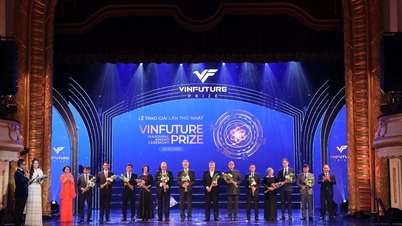

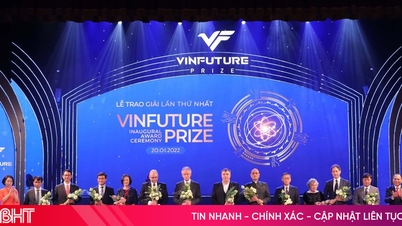


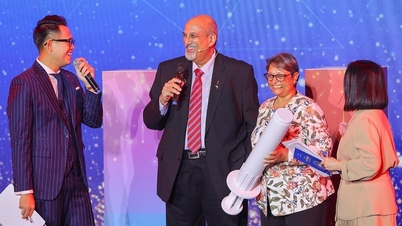

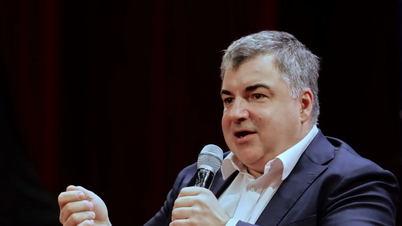

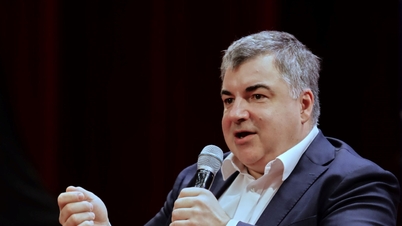




![[INFOGRAPHIC] China announces crew of Shenzhou 21 mission](https://vphoto.vietnam.vn/thumb/402x226/vietnam/resource/IMAGE/2025/11/05/1762297490558_thumb-than-chau-21-jpg.webp)
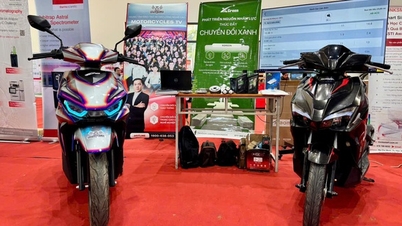




































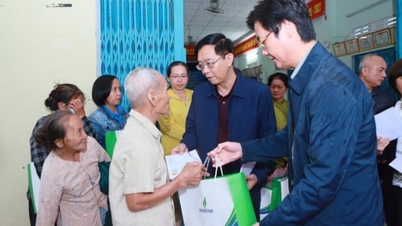










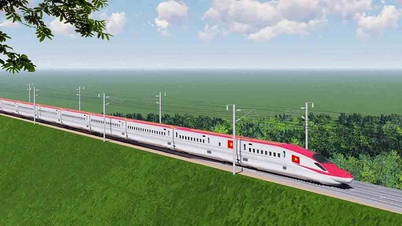
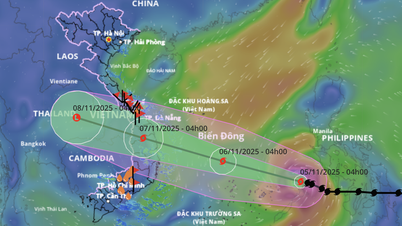

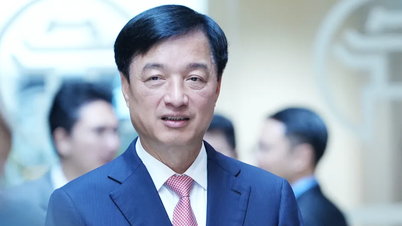


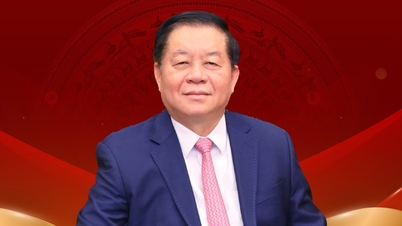
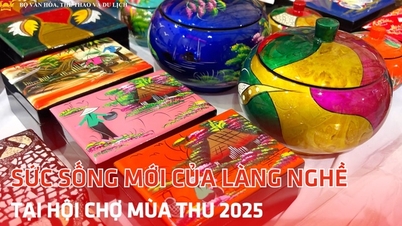











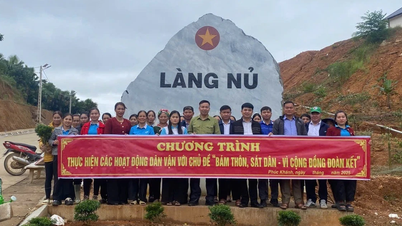



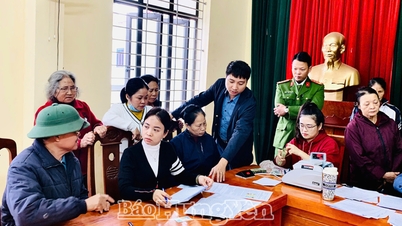













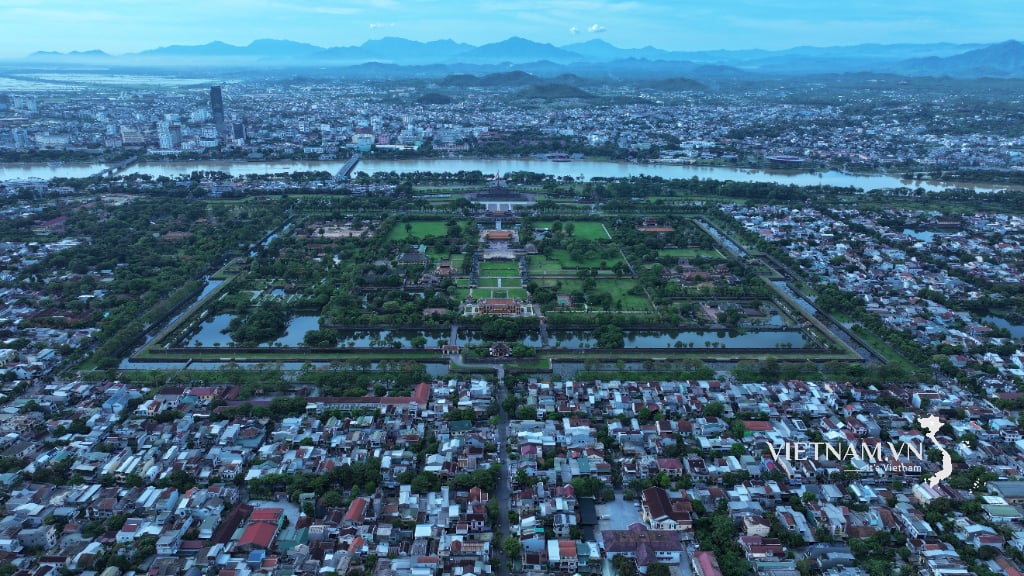


Comment (0)